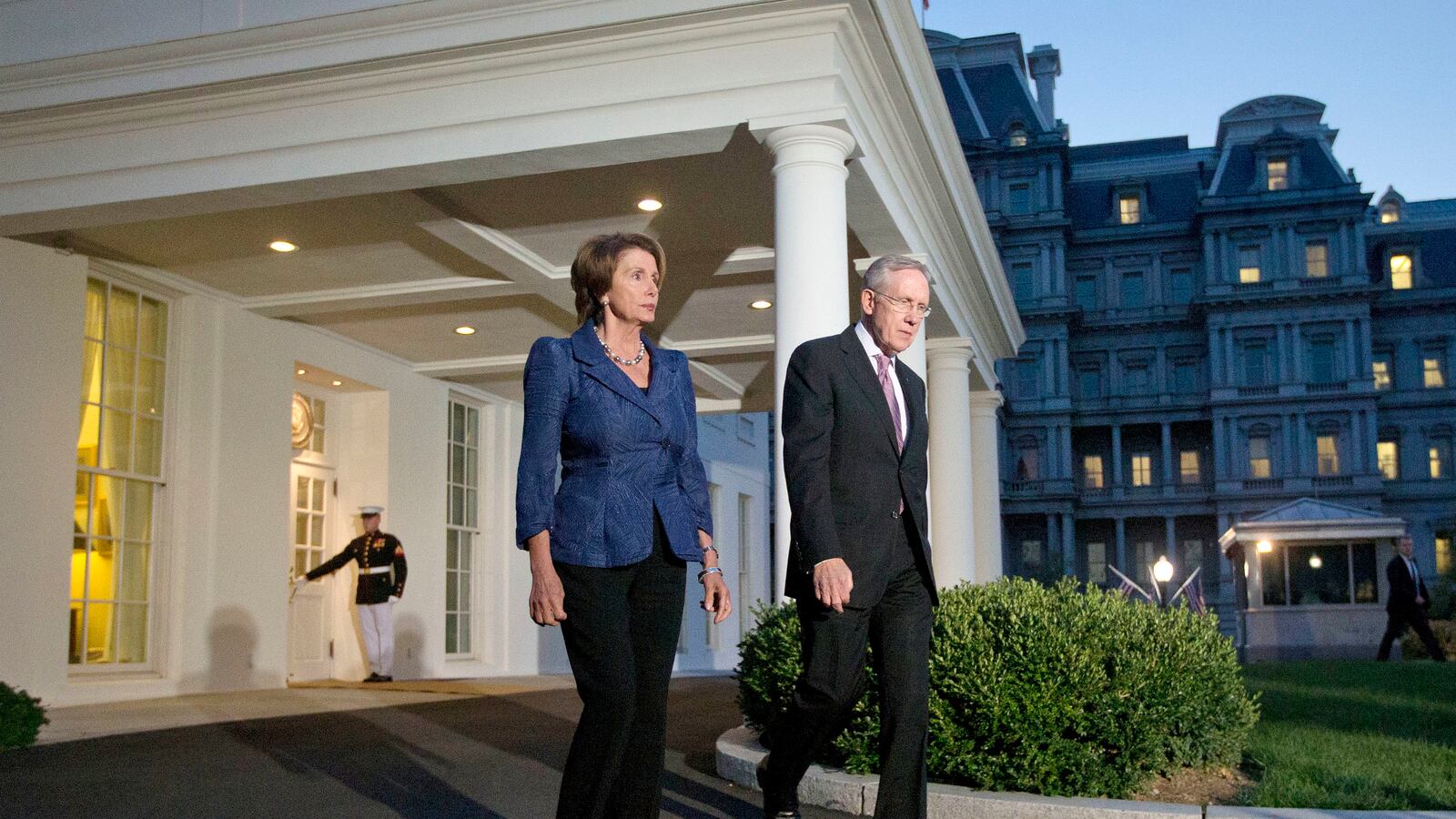If there’s one thing most liberals agree on, it’s that until Republicans reopen the government and raise the debt ceiling, Democrats shouldn’t talk to them about anything else. “Until we make sure Congress allows Treasury to pay for things that Congress itself already authorized,” President Obama told CNBC last week, “we are not going to engage in a series of negotiations.”

“What matters now above everything else,” adds Andrew Sullivan, “is that the president wavers not a jot or tittle in demanding a clean CR.”
I disagree. The argument against negotiating on broader issues until Republicans reopen the government is that doing so would reward legislative “hostage taking.” By giving the GOP a budgetary “ransom” in return for doing what the GOP should be doing anyway, the logic goes, Democrats give Republicans an incentive to threaten a government shutdown and a debt default in the future.
But that logic only holds if by negotiating now, in the shadow of the shutdown and a debt default, Democrats concede more than they would otherwise. If Democrats concede less, then it’s not they who would be paying the ransom. It’s the GOP. Go back to the hostage-taking analogy. If kidnappers take your countrymen hostage, and you pay money to get them back, you’ve incentivized them to kidnap again. But if kidnappers take your countrymen hostage and the experience proves so disastrous that they’re willing to give them back while also paying you, you should take the deal.
Republican leaders may be willing to do just that. Having shut down the government and risked a debt default in order to win concessions from the White House, they’re now finding that their hostage taking has backfired. The GOP is bearing a disproportionate share of the public blame for the current mess. And in contrast to congressional Democrats, who remain united, congressional Republicans are sniping at each other viciously. Party greybeards are apoplectic.
With the exception of a few fanatics, most congressional Republicans are now looking for a face-saving way out, some way of ending this standoff without looking like they completely caved. A budget deal could offer that. By reopening the government and raising the debt ceiling while also boosting tax revenue and curbing government spending, Republicans could claim they’ve gotten something out of this mess. But that something might well be less than they would have gotten otherwise. That’s especially true now that John Boehner has promised that he’ll prevent a debt default, even if it requires Democratic votes, thus removing the GOP’s best source of leverage. Key Boehner allies are even signaling their willingness to raise revenue in order to extricate themselves from the hole they’ve dug. It’s hard to imagine Republicans going into grand bargain negotiations in a weaker position.
I’m not saying that it’s likely Republicans will make enough concessions to get a big budget deal. Only that it’s more likely than if Democrats force them to reopen the government and raise the debt ceiling before budget talks begin. Once that happens, the pressure this fiasco is putting on the GOP will subside. And having ignominiously backed down in the shutdown/debt ceiling standoff, Republicans will find it harder to make concessions in the budget negotiations that follow. Jonathan Chait has argued that if Boehner negotiates a grand bargain that involves serious concessions to the White House, and pushes it through the House with significant Democratic votes, he’ll lose his speakership. But caving in the current standoff could cost Boehner his speakership anyway. Why not see if he’ll cut a big fiscal deal along the way?
Sooner or later, Democrats and Republicans are going to have to quit lurching from crisis to crisis and come to an agreement about the country’s fiscal future. I’d rather them make that agreement when Republican leaders feel maximum pressure to compromise. That may just be now.






